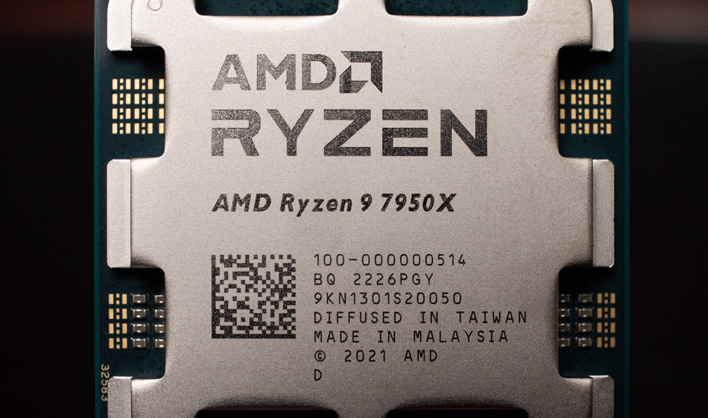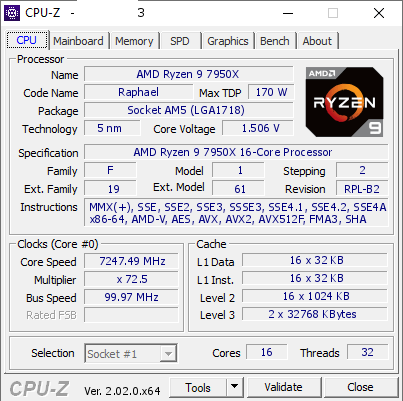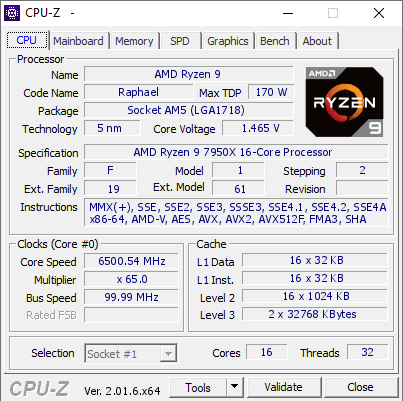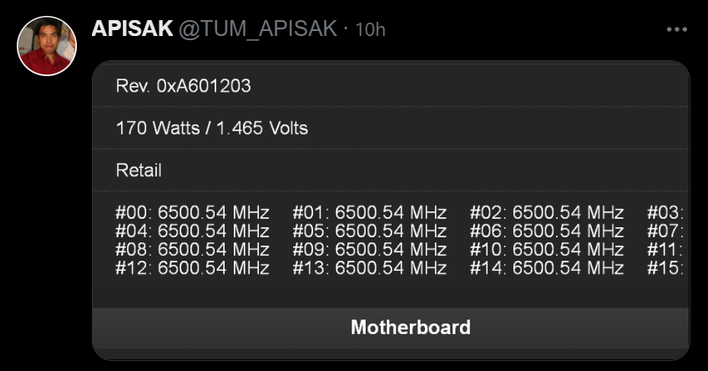AMD's fifth-generation desktop Ryzen CPUs
aren't even out yet, but they're already setting performance records. If you missed it,
check our post yesterday where we talked about some crazy overclocking and insane benchmark results from AMD's pre-release processors. Those results came about with "standard" water-cooling, though. What can the chip do under liquid nitrogen? As it turns out, at least 7.25 GHz.
That speed is one of two overclocking results presented today by veteran benchmark-watcher APISAK (@TUM_APISAK on Twitter.) While he didn't link the CPU-Z validation for either result, we've no real reason to doubt him at his words. This 7.25 GHz result was taken with all 16 cores active, but the clock was only reached on a single core.
Still, that's very impressive for a modern CPU architecture. The world-record clock speed is still
The Stilt's 8,722 MHz result from an AMD FX-8370, but we've no doubt that Zen 4 at 7.25 GHz would absolutely massacre the
poor old Vishera chip despite the 1.5 GHz clock rate disparity.
Even putting aside that it requires exotic and expensive LN2 cooling to achieve, a single-core clock rate isn't particularly practical in any case, of course. That's why the other result is arguably more impressive. Likely using a similar cooling setup (and a slightly toasty 1.465v core voltage), overclockers managed to hit a cool 6.5 GHz across all 16 cores of the Ryzen 9 7950X.
These results are impressive, but it will be interesting to see what the practical limits of AMD's silicon are after the CPU launches. Intel's
already promised a Raptor Lake SKU that does 6 GHz out of the box, and overclockers have
pushed it to 8 GHz under extreme cooling. With the CPUs running
neck-and-neck in IPC, that could present a big performance advantage to Intel's chips—assuming you can handle the power, heat, and noise required by such a chip.






